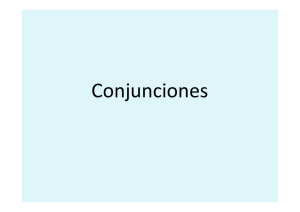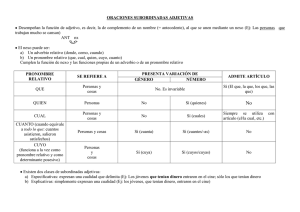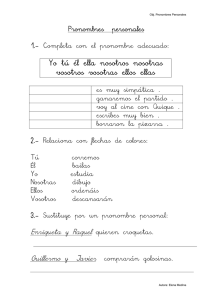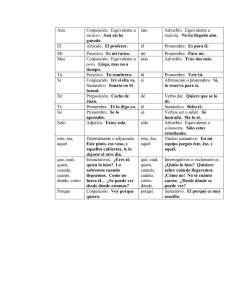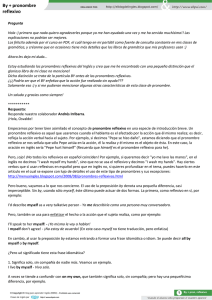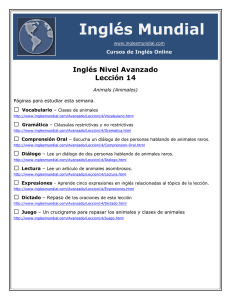unit 14: paco`s letter - Horarios de los centros asociados de la uned
Anuncio
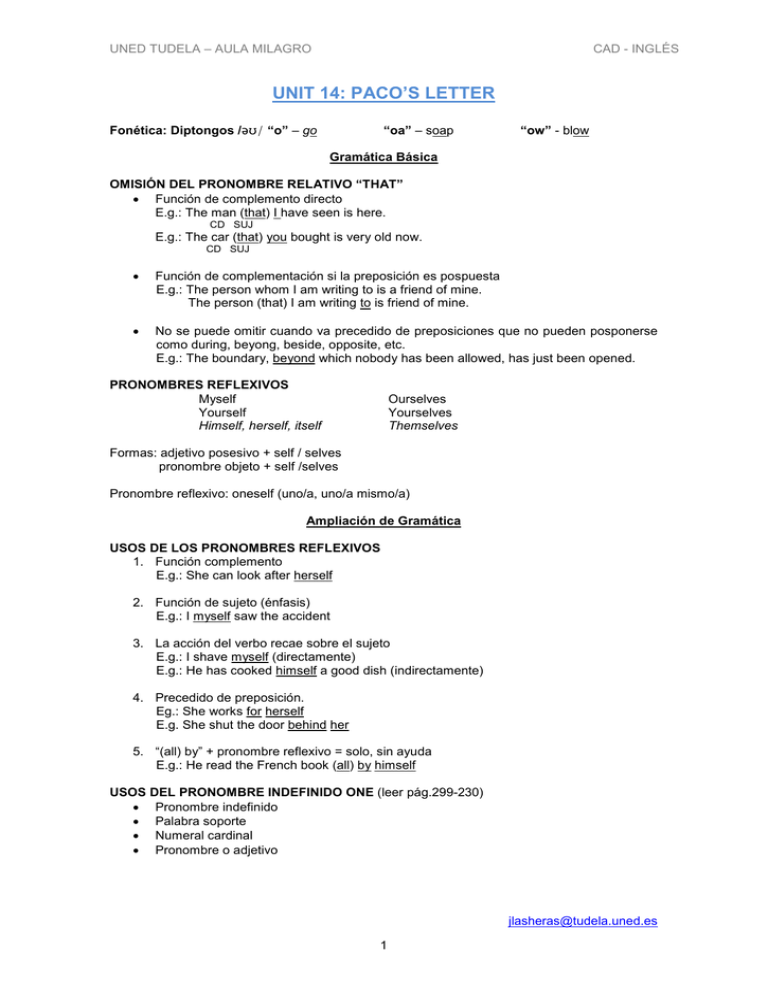
UNED TUDELA – AULA MILAGRO CAD - INGLÉS UNIT 14: PACO’S LETTER “oa” – soap Fonética: Diptongos /ǩȚ/ “o” – go “ow” - blow Gramática Básica OMISIÓN DEL PRONOMBRE RELATIVO “THAT” • Función de complemento directo E.g.: The man (that) I have seen is here. CD SUJ E.g.: The car (that) you bought is very old now. CD SUJ • Función de complementación si la preposición es pospuesta E.g.: The person whom I am writing to is a friend of mine. The person (that) I am writing to is friend of mine. • No se puede omitir cuando va precedido de preposiciones que no pueden posponerse como during, beyong, beside, opposite, etc. E.g.: The boundary, beyond which nobody has been allowed, has just been opened. PRONOMBRES REFLEXIVOS Myself Yourself Himself, herself, itself Ourselves Yourselves Themselves Formas: adjetivo posesivo + self / selves pronombre objeto + self /selves Pronombre reflexivo: oneself (uno/a, uno/a mismo/a) Ampliación de Gramática USOS DE LOS PRONOMBRES REFLEXIVOS 1. Función complemento E.g.: She can look after herself 2. Función de sujeto (énfasis) E.g.: I myself saw the accident 3. La acción del verbo recae sobre el sujeto E.g.: I shave myself (directamente) E.g.: He has cooked himself a good dish (indirectamente) 4. Precedido de preposición. Eg.: She works for herself E.g. She shut the door behind her 5. “(all) by” + pronombre reflexivo = solo, sin ayuda E.g.: He read the French book (all) by himself USOS DEL PRONOMBRE INDEFINIDO ONE (leer pág.299-230) • Pronombre indefinido • Palabra soporte • Numeral cardinal • Pronombre o adjetivo jlasheras@tudela.uned.es 1
